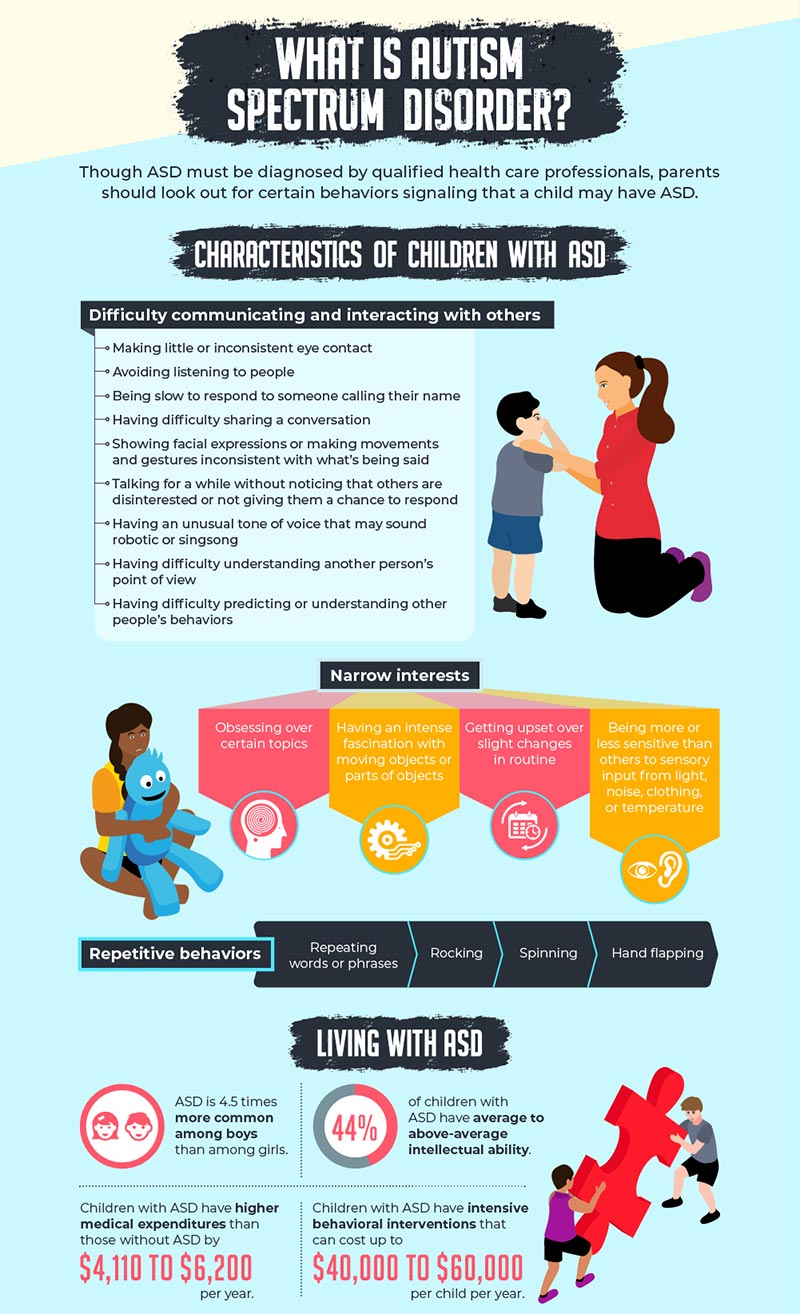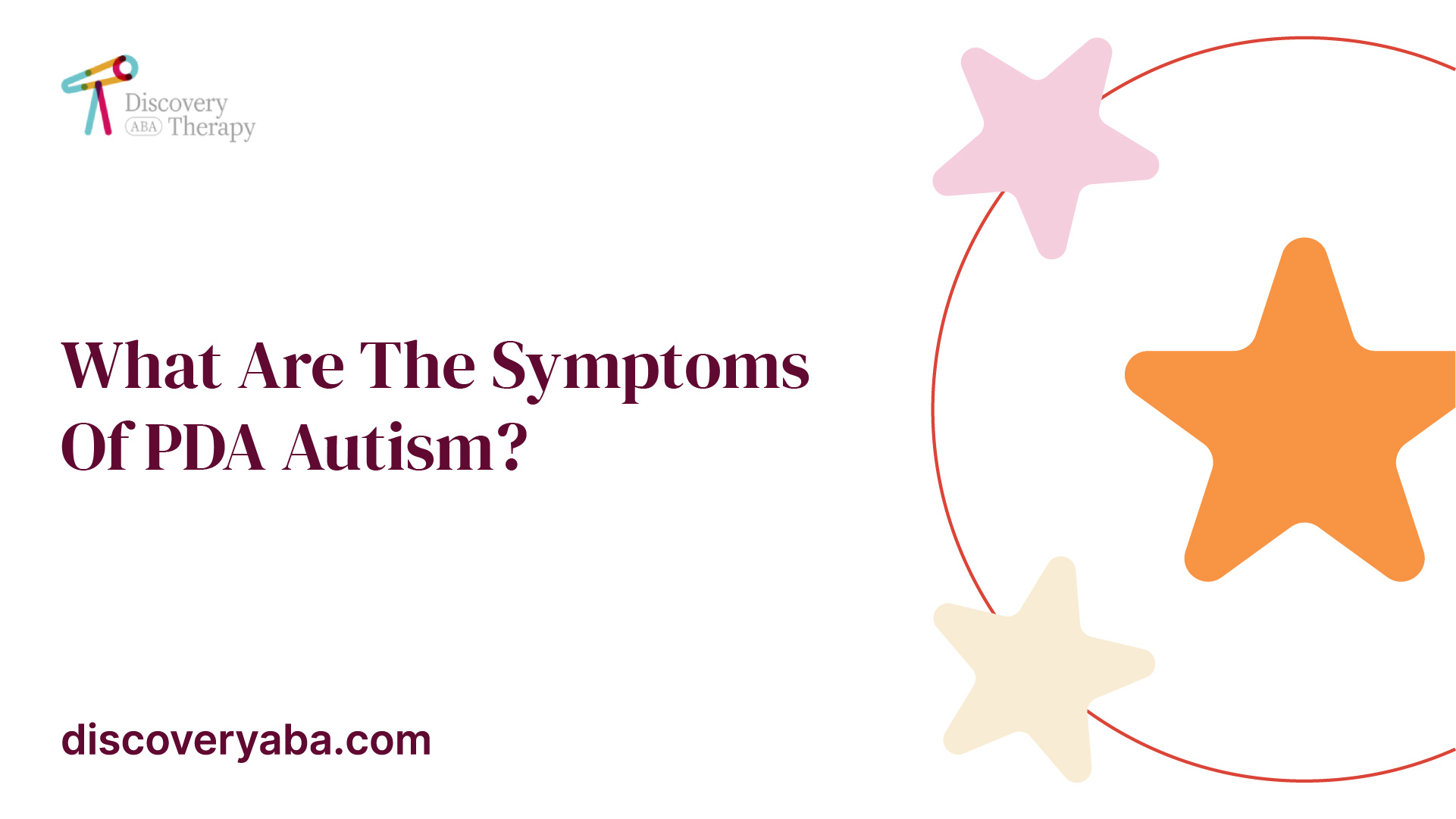How a skilled Autism Therapist can transform everyday life for those managing ASD
How a skilled Autism Therapist can transform everyday life for those managing ASD
Blog Article
Understanding the Impact of Behavioral Autism on Life and Social Interactions
You might not understand just how deeply behavioral autism affects everyday life and social communications. People on the range usually navigate a globe loaded with communication hurdles and sensory overload. These obstacles can lead to frustration and seclusion, affecting their connections and general wellness.
Specifying Behavioral Autism and Its Features
Behavior autism, typically referred to as autism spectrum disorder (ASD), includes a range of problems identified by challenges in social interaction, communication, and repeated actions. You may notice that individuals with ASD typically battle to analyze social cues, which can cause misconceptions in conversations. They might locate it difficult to develop eye call or participate in little talk, making social scenarios feel overwhelming.
Interaction troubles can materialize in numerous methods, from delayed speech advancement to a preference for using less words. Recurring behaviors, such as hand-flapping or shaking, can work as coping systems to manage anxiety or sensory overload. These qualities can greatly affect daily life, making it crucial for you to understand and support those with ASD. By identifying these traits, you can cultivate a setting that advertises approval and encourages efficient interaction, aiding individuals with autism grow in their everyday communications.
The Spectrum of Autism: Understanding Irregularity in Actions
Autism range disorder (ASD) isn't a one-size-fits-all medical diagnosis; it varies widely among people. You might notice that some individuals with ASD exhibit light signs, while others may encounter more significant difficulties. This irregularity can manifest in behaviors, passions, and sensory level of sensitivities. You might encounter people that are extremely spoken and engage quickly in conversations, while others could like singular activities or communicate non-verbally.
Moreover, the means individuals with ASD react to sensory input can vary considerably; some could be bewildered by loud sounds or brilliant lights, whereas others grow in promoting atmospheres. The spectrum also includes distinctions in social interactions; some people might have a hard time to translate social signs, while others navigate social settings with loved one simplicity. Understanding this irregularity is essential, as it helps you appreciate each person's one-of-a-kind experience and tailor support to their specific requirements, fostering an extra inclusive environment for everybody.
Interaction Difficulties Dealt With by Individuals With Autism
When you communicate with individuals on the autism spectrum, you might notice their special interaction challenges. They typically face difficulties with both verbal and nonverbal cues, which can affect their social communications. Understanding these barriers is crucial for cultivating better connections and support.

Verbal Communication Difficulties
Numerous individuals on the autism range experience verbal interaction difficulties that can substantially affect their everyday communications. You may find it testing to reveal your thoughts, sensations, or requires plainly. This can cause aggravation for both you and those around you, as misconceptions occur. You might have a hard time with initiating conversations, keeping a subject, or comprehending subtleties in speech. Typically, you may favor using simple language or repetitive expressions, which can limit your capability to engage in much deeper discussions. Your pace, volume, or tone may not straighten with social expectations, triggering others to misunderstand your purposes. Acknowledging these difficulties can assist you and your support network establish techniques to boost communication and cultivate much better links with others in your day-to-day live.
Nonverbal Interaction Barriers
Spoken interaction isn't the only difficulty individuals on the autism spectrum face; nonverbal communication barriers can be simply as considerable. These difficulties can lead to misconceptions or misinterpretations of social signs, making interactions really feel complicated or overwhelming. By addressing nonverbal interaction, you can discover strategies to enhance your social experiences and enhance your general high quality of life.
Social Communication Influences
Social interactions can frequently really feel frustrating as a result of the unique interaction difficulties encountered by people with autism. You may deal with analyzing social signs, making it hard to recognize sarcasm or body movement. This can lead to misunderstandings or unpleasant moments in conversations. Additionally, launching and maintaining conversations may feel difficult, creating stress and anxiety in social situations. You might like organized atmospheres, making spontaneous interactions uneasy. It's additionally usual to experience difficulty in involving in tiny talk, which can prevent creating new friendships. Identifying these difficulties can help you discover strategies to improve interaction, such as exercising social abilities in secure setups or making use of visual aids - Autism Spectrum Therapies. Comprehending your requirements enables you to browse social communications with better confidence and simplicity.
Social Interaction and Partnership Building in Autism
While structure connections can be testing for individuals with autism, recognizing their unique perspectives and communication styles can cultivate purposeful connections. You might discover that several individuals on the spectrum like Aba Therapist Near Me straight communication and might battle with social signs or tiny talk. By being straightforward in your interactions, you can assist create an atmosphere where they feel comfy.
Involving in shared rate of interests can likewise offer as a bridge to deeper links. Whether it's a pastime, a favored show, or a mutual enthusiasm, these usual threads can open doors to relationship.
Life Regimen: Navigating Challenges and Strategies
Maneuvering day-to-day life routines can be especially challenging for people with autism, especially when unanticipated changes happen. To browse these obstacles, consider applying aesthetic schedules or checklists.
Establishing a routine that consists of sensory breaks can additionally be valuable. You can plan short breaks throughout your day to charge. It's important to communicate with those around you, allowing them understand your choices and demands. This aids produce an understanding environment.
Lastly, method mindfulness techniques to manage tension and anxiety. Easy discover here breathing workouts or grounding strategies can make a significant distinction. By incorporating these methods, you can enhance your day-to-day routine and reduce disruptions, making life feel extra convenient.
Staminas and Abilities of People on the Autism Range
Comprehending daily life regimens is just one element of the autism experience. Numerous people on the autism spectrum possess remarkable strengths and capacities that establish them apart.
Moreover, your memory skills usually beam, especially in areas of passion. Autism Therapist. This propensity for keeping info can make you a valuable resource in areas like art, science, or innovation. You might additionally exhibit strong aesthetic reasoning, allowing you to envision intricate concepts and resolve problems creatively
In addition, your distinct viewpoint on the world can foster empathy and understanding in others, enhancing social interactions. Accepting these strengths not just improves your confidence yet also assists others appreciate the diverse skills you offer the table.
Creating Inclusive Environments for People With Autism
Creating comprehensive atmospheres for people with autism starts with designing sensory-friendly spaces that accommodate their unique needs. You can additionally cultivate chances for social communication, aiding to construct friendships and links. By making these adjustments, you'll add to a more inviting atmosphere for everybody.
Creating Sensory-Friendly Spaces
While designing sensory-friendly rooms, it's important to show on the unique needs of people with autism. Incorporate quiet zones where people can pull away and charge when overwhelmed. Consist of visual schedules or clear signage to help people browse the room with confidence.
Advertising Social Communication Opportunities
Designing sensory-friendly rooms not only addresses private convenience yet likewise establishes the stage for significant social interactions amongst people with autism. Urge peer mentoring, combining people with autism with encouraging peers that can guide them through social situations. By executing these approaches, you can enhance social possibilities, assisting people with autism construct friendships and reinforce their social skills in a safe, welcoming environment.

Regularly Asked Questions
Just How Can Buddies Support A Person With Behavioral Autism?
You can sustain a buddy with behavioral autism by holding your horses, listening actively, and appreciating their boundaries. Participate in tasks they enjoy, communicate honestly, and produce a comfy atmosphere where they feel valued and comprehended.
What Resources Are Available for Moms And Dads of Children With Autism?
You can check out various resources for moms and dads of children with autism, consisting of support groups, academic websites, and local community solutions. Linking with various other parents can also offer important understandings and shared experiences to assist browse obstacles.
Can Behavioral Autism Adjustment Gradually?

Yes, behavioral autism can transform with time. You may see changes in communication, social abilities, and actions as your youngster grows. Early treatment and support commonly play important functions in these developing changes.
Just How Do Sensory Level Of Sensitivities Influence Every Day Life?
Sensory level of sensitivities can make daily experiences frustrating. You might have problem with his explanation bright lights or loud sounds, bring about stress and anxiety or avoidance. Discovering atmospheres that fit your requirements can substantially improve your convenience and general every day life.
What Are Usual Misconceptions Regarding Behavioral Autism?
You may believe behavior autism only influences communication skills, but it's even more complex. Several presume individuals do not have empathy or knowledge, which isn't real. Understanding these misunderstandings assists foster approval and support for those on the range.
Behavioral autism, usually referred to as autism spectrum disorder (ASD), encompasses a range of conditions defined by difficulties in social interaction, interaction, and recurring behaviors.Social interactions can frequently really feel overwhelming due to the special interaction obstacles encountered by people with autism.Creating sensory-friendly areas not just addresses specific convenience yet additionally sets the phase for significant social interactions among individuals with autism. Urge peer mentoring, pairing individuals with autism with encouraging peers who can direct them via social scenarios. By applying these approaches, you can boost social possibilities, aiding people with autism construct friendships and reinforce their social skills in a safe, welcoming atmosphere.
Report this page